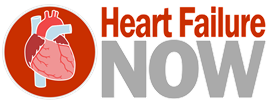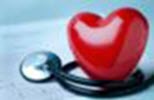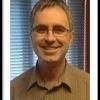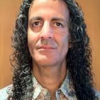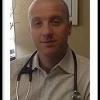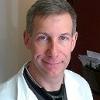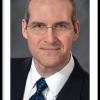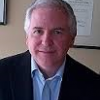Cardiologist, discusses the importance of taking anticoagulants for stroke prevention in patients with Atrial Fibrillation.
What is Cardiologist
If you have a heart condition or symptoms of a heart condition such as obesity, atrial fibrillation, stroke or heart murmur, your local family physician will refer you to a local cardiologist. A local cardiologist is a medical provider who diagnoses and treats diseases of the cardiovascular system and blood vessels. A local cardiologist may perform surgeries such as ablation, coronary angioplasty, stent implementation and pacemaker surgery. Or, they may refer you to a local cardiothoracic surgeon to perform the surgery. Cardiologists treat mental wellbeing , emotional wellness , physical wellness , spiritual wellness amoung other things.
If you have a heart condition or are recovering from heart surgery, your local cardiologist may recommend heart medications and/or lifestyle changes like quitting drinking and smoking, getting more exercise or eating low-sodium, low-fat foods. A local cardiologist can also work with your other healthcare providers, from your local registered dietitian to your local Pilates instructor. If you’d like to learn how a local cardiologist may help you manage your heart condition such as a genetic cardiac condition or COPD, talk to your local family physician.
Atrial fibrillation isn't usually life threatening, but it is a serious medical condition that requires treatment. If you experience atrial fibrillation symptoms, consult with your doctor. Your physician may recommend an electrocardiogram to diagnose your heart condition. The goal of atrial fibrillation treatment is to restore your normal heart rate and rhythm and prevent blood clots.
The Canadian Heart Rhythm Society mission is to improve the care of patients through research, advocacy, education and development of best practices in the field of heart rhythm disorders.
If you have any more questions about your atrial fibrillation or whether you may be a potential candidate for ablation for your atrial fibrillation, feel free to contact your local health professional, your cardiologist, or have them refer you to the heart rhythm program here at Southlake Regional Health Centre, where we’ll be happy to do a consultation.
Heart disease is the leading cause of death for men and women in North America. Heart disease refers to many conditions that affect the heart, including coronary artery disease, heart attack, heart rhythm problems (arrhythmias), congenital heart defects and more. Seeing your local cardiolgist is agreat palce to be edcuated.
In many cases, heart disease can be prevented by controlling risk factors. Risk factors for heart disease include obesity, high blood pressure, smoking, high cholesterol and diabetes. The best place to start is with your physician – he or she can help you get on the right track with diet, exercise and lifestyle modifications.
For Heart Disease: High blood pressure is a major risk factor for heart disease and one of the most
common reasons why North Americans are prescribed medication.One of the big dietary drivers of heart disease is an imbalance between dietary sodium and potassium content, with tomatoes being an excellent potassium source their inclusion can contribute to improved heart health and reduced disease risk.
Atrial fibrillation is an irregular heartbeat, also called an arrhythmia, that can increase your risk of heart failure, stroke, blood clots and other heart conditions. A normal heart contracts and relaxes to a regular beat, but if you have atrial fibrillation, the atria (upper chambers) beat out of sync with the ventricles (lower chambers). This can cause blood to pool in your atria, causing blood clots that travel to your brain and cause a stroke.
Cardiac ablation is a procedure that can correct heart rhythm problems (arrhythmias). Cardiac ablation works by scarring or destroying tissue in your heart that triggers or sustains an abnormal heart rhythm.
The main types of cardiovascular disease seen in practice related to atherosclerosis, or fatty deposit in the arteries. And this can manifest as angina or chest pain, heart attack, heart failure, stroke and sometimes as problems with the peripheral blood vessels, usually a narrowing of these vessels. As time goes on, atrial fibrillation is becoming much more of an issue as the population ages, and this is an irregularity of the top chambers of the heart beat, which is very related to older individuals.A number of things can be done to reduce the risk of developing heart disease, and also to minimize the chance of future cardiovascular events in individuals who have already been diagnosed with heart disease, or has had an event such as a heart attack or stroke. In particular, getting into a regular exercise program makes a huge difference to the subsequent risk. And patients should be encouraged to exercise for at least half an hour for at least three days a week, and the more the better, really, in terms of exercise.
Diet is a huge part of it as well. Certainly patients should be encouraged to reduce the amount of salt in their diet, and certainly the amount of fat as well. A diet rich in fruit and vegetables is recommended as well.
Smoking cessation is a pretty obvious way to reduce subsequent risk. And then there's the control of the major risk factors such as diabetes, hypertension, and high cholesterol, and often this requires medications.
Stress reduction is a significant part of the treatment of heart disease as well as the prevention of it, and individuals should be encouraged to reduce the amount of stress in their life.
Often this involves working less, exercising more, and just taking the time to deal with their health issues.
Moderation of alcohol intake is another factor that can reduce subsequent cardiovascular risk. And there is some data that having up to two drinks a day may be beneficial in terms of reducing risk. But certainly if individuals have health concerns they should see their local practitioner and explore their cardiovascular risk and ways to reduce it
Heart failure medications, such as ACE inhibitors, beta-blockers, diuretics, and aldosterone antagonists, help to reduce symptoms, improve heart function, and prevent further damage to the heart. These medications are prescribed based on the individual's specific condition and needs.
In addition to medication, adopting a healthy lifestyle is crucial for managing heart failure. This includes following a heart-healthy diet low in salt and saturated fats, engaging in regular physical activity as tolerated, managing stress, avoiding smoking and excessive alcohol consumption, and maintaining a healthy weight. These lifestyle changes can significantly improve heart function, reduce symptoms, and enhance overall well-being.
Furthermore, the support of family and friends plays a vital role in managing heart failure. Having a strong support system who understands the condition and can provide emotional support can be immensely helpful. It is important for loved ones to be aware of the symptoms and potential limitations of heart failure, and to be supportive of the lifestyle changes and medical treatment required.
Cardiologists are medical doctors who may be a member of Society of Cardiovascular Computed Tomography (SCCT) specialize in the diagnosis, treatment, and prevention of heart and cardiovascular diseases. They play a crucial role in the management of patients with pacemakers. Here are a few reasons why a patient with a pacemaker may need to see a cardiologist:
-
Pacemaker implantation: Cardiologists are responsible for the initial assessment and decision-making regarding pacemaker implantation. They evaluate the patient's medical history, perform necessary tests, and determine if a pacemaker is necessary.
-
Follow-up care: After pacemaker implantation, regular follow-up visits with a cardiologist are essential. These visits involve checking the pacemaker function, monitoring the heart's electrical activity, and ensuring the device is working optimally.
-
Battery replacement: As mentioned earlier, pacemaker batteries typically last for 10 to 15 years. When the battery nears depletion, a cardiologist will perform a simple procedure to replace it. This usually requires a short stay in the hospital for a few hours.
-
Pacemaker troubleshooting: In case of any issues with the pacemaker, such as malfunctioning or inappropriate pacing, a cardiologist is responsible for diagnosing and addressing the problem. They may perform tests, adjust programming, or even replace the device if necessary.
-
Adjusting pacemaker settings: Cardiologists can fine-tune the pacemaker settings based on the patient's specific needs. They can adjust parameters like heart rate, sensitivity, and response to activity levels to optimize the device's performance and enhance the patient's quality of life.
-
Managing underlying heart conditions: Pacemakers are primarily used to regulate heart rhythm. However, patients with pacemakers often have other heart conditions, such as arrhythmias, heart failure, or coronary artery disease. Cardiologists are skilled in managing these conditions and ensuring comprehensive care for the patient.
-
Coordinating with other specialists: Cardiologists often work in collaboration with other healthcare professionals, such as cardiac surgeons, electrophysiologists, and cardiac rehabilitation specialists, to provide comprehensive care to patients with pacemakers.
Overall, cardiologists play a vital role in the care and management of patients with pacemakers, ensuring their devices function optimally and helping them lead healthier lives.
People with AF should be mindful of their lifestyle choices and medications to help manage and reduce the risk of arrhythmia episodes. Here are some additional points to consider regarding daily habits, alcohol consumption, and over-the-counter medications for individuals with AF:
-
Alcohol Consumption: Alcohol can have a significant impact on heart rhythm, and excessive alcohol consumption can trigger or exacerbate atrial fibrillation episodes. It's recommended that individuals with AF limit their alcohol intake, or in some cases, avoid it altogether. If you choose to drink, it's best to do so in moderation and be aware of how alcohol affects your heart rhythm.
-
Caffeine and Stimulants: While moderate caffeine consumption is generally considered safe for most people, some individuals with AF may be sensitive to caffeine and other stimulants. It's a good idea to monitor how your body responds to caffeine and other stimulants, and consider reducing or eliminating them if they seem to trigger or worsen your arrhythmia.
-
Over-the-Counter (OTC) Medications: Many over-the-counter medications, including cold and flu remedies, pain relievers, and decongestants, contain stimulants or other compounds that could potentially trigger or interact with your AF medications. Before taking any OTC medication, it's advisable to consult your healthcare provider or pharmacist to ensure it's safe and won't interfere with your AF treatment.
-
Healthy Diet and Weight Management: Maintaining a healthy diet and managing your weight can positively impact your heart health and reduce the risk of AF episodes. Eating a balanced diet that's low in saturated fats, sodium, and processed foods can contribute to better heart health.
-
Stress Management: Stress and anxiety can sometimes contribute to AF episodes. Practicing stress-reduction techniques such as deep breathing, meditation, yoga, and regular exercise can help manage stress levels and potentially reduce the frequency of arrhythmia episodes.
-
Regular Exercise: Engaging in regular, moderate exercise under the guidance of your healthcare provider can help improve cardiovascular health and overall well-being. However, intense or strenuous exercise may trigger AF in some individuals, so it's important to discuss your exercise routine with your doctor.
-
Medication Adherence: It's crucial to take your prescribed medications as directed by your healthcare provider. Skipping doses or stopping medications without medical guidance can lead to uncontrolled arrhythmia and potential complications.
Remember, each person's experience with atrial fibrillation can vary, and what triggers or exacerbates AF episodes for one person may not apply to another. It's important to work closely with your healthcare team to develop a personalized management plan that addresses your specific needs and helps you lead a healthy and fulfilling life despite your diagnosis.
The Cardiologists are in good standing with the College of Physicians and Surgeons of Canadaand in good standing with the Canadian Cardiovascular Association and the Canadian Medical Association
Useful Resources
Canada
Royal College of Physicians and Surgeons of Canada
Northwest Territories
Nunavut
United States of America
National Provider Identifier (NPI)
